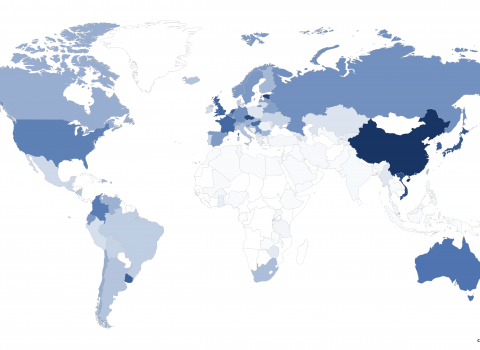
(Non-)Religion, Big Data and AI Ethics: Is Bigger Necessarily Better?
The complex relationship between Big Data, AI ethics, religion, and non-religion
The Center for Religious Studies of Bruno Kessler Foundation recently published a policy paper – titled Shaping the AI Transformation: The Agency of Religious or Belief Actors – that explores the complex relationship between Big Data, AI ethics, religion, and non-religion. A summary of the key points raised by the policy paper is already available on FBK-ISR’s web page. In this short article, I would like to briefly address one of the aspects that this policy paper highlights. Namely, the representation of (non-)religious communities in the training samples.
Simply put, a training sample is a large dataset used to train the “intelligence” of algorithms and AI-based agents. In principle, the more you feed the model with data the better it will get at recognizing stimuli and reacting accordingly. However, when data used to train AI is biased, there is the risk to embed those biases in the model itself. Far from being a remote possibility, this scenario constitutes a rather common issue. Indeed, training samples can contain stereotypical information and/or have disproportionate data in terms of, for example, gender, ethnicity or geographical origin. It is for this reason that the sheer quantity of data is, on its own, insufficient.
While researchers increasingly express their concerns about the quality of data (see Paullada et al., 2021), research about bias related to religion and about consequences of the misrepresentation of religious communities in the training samples is currently still underdeveloped. The situation of non-religion is largely similar although slightly different. Over the course of the past four decades, the percentage of religiously unaffiliated people kept steadily growing. As of today, non-religion is the new majority in several Western countries. However, the normalization of non-religion arguably had an important consequence in the West: it became more difficult to frame non-religion as a form of belief and non-religious communities as potential recipients of discrimination. Indeed, outside of the emerging field of Non-Religion Studies, non-religion is rarely considered or adequately problematized.
When it comes to religion, it is relatively easy to imagine how the digitization of negative stereotypes can harm and discriminate religious communities. Think, for example, about the fact that GPT-3 (a large language model) is more likely to associate the word “Muslim” with negatively labelled terms such as “shooting”, “bombs”, “murder” or “violence” (Garrido-Muñoz et al., 2021). Nevertheless, so far research focused mostly on other socio-demographic characteristics such as gender or ethnicity frequently leaving the analysis of religion behind. And what about non-religion? Are there even negative stereotypes about non-religious people? Are they truly discriminated? Westerners might be tempted to answer “no” to these questions or to minimize the issue by pointing out that nowadays not being religious is both normal and socially accepted. While this is partially true, things are a little bit more complicated than that. According to the latest report of Humanists International, non-religious people in nearly 70 countries around the world still face either “grave” or “severe” discrimination when their freedom of expression is concerned. This number increases even further when also “systemic” discrimination is considered. The problem is not limited to African and Middle Eastern countries as someone might think. Indeed, even in countries like the United States, non-religious people occasionally have to deal with negative attitudes and discrimination (Cragun et al., 2012; Mackey et al., 2020).
The bottom line is rather simple, both religion and non-religion still play a role in the unfolding of various social tensions taking place around the world. It is therefore important to improve our understanding of potential misrepresentations of religion in the training samples and to explicitly address the neglect of non-religion. The nature of this problem is not just ethical, it is a matter of efficacy too. In order to outsource important choices to opaque and automated decision makers that allows to save considerable amounts of time and other resources, we need to know that the process is fair. In other words, we need to make the process less opaque and more transparent by defining acceptable quality standards and adequate control mechanisms. In this sense, FBK-ISR’s policy paper is, among other things, an invitation to problematize the role of religious and non-religious components of the population in the training of intelligent systems that are increasingly governing our daily lives.


